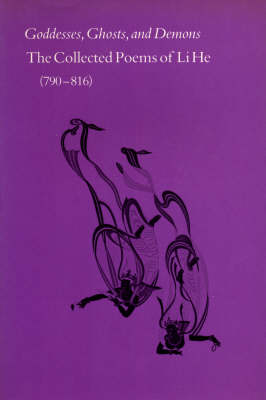Poetica
1 primary work
Book 15
Poetica 15 Li He, born in 790 A.D., is said to have written poetry of great power at age seven. His death at twenty-six was considered a tragic loss. Legend records him writing poems on horseback, gathering the fragments in a tapestry bag carried by a servant lad. His mother once exclaimed, 'This boy of mine won't be content until he has vomited out his heart'. Barely 240 poems survive. Neglected in his own country for many years as aberrant and extremist, his work has recently undergone a re-evaluation in China and Japan, as well as in the West. As mystic and shaman-poet, Li He writes of goddesses, of the supernatural and demonic, of time and of alchemy. Taoist and Buddhist, his verse is distinguished by a romantic extravagance, a wild, exotic pessimism, a dark beauty more like Baudelaire or Trakl than like his contemporaries in the late T'ang. Today his poems seem unsettlingly modern. T'ang China (618-907) was one of the richest cultural periods in history, a flowering of art and literature of extraordinary beauty and endurance. In poetry, this three-hundred-year period's impact was so great that many people's conception of Chinese poetry is actually T'ang poetry.
This was also a period of religious and philosophical thought. Taoism, Confucianism and Buddhism each exerted great influence on this medieval society. Among the great T'ang writers and philosophers, Li He stood apart as a poet of remarkable and eccentric originality and genius.
This was also a period of religious and philosophical thought. Taoism, Confucianism and Buddhism each exerted great influence on this medieval society. Among the great T'ang writers and philosophers, Li He stood apart as a poet of remarkable and eccentric originality and genius.
